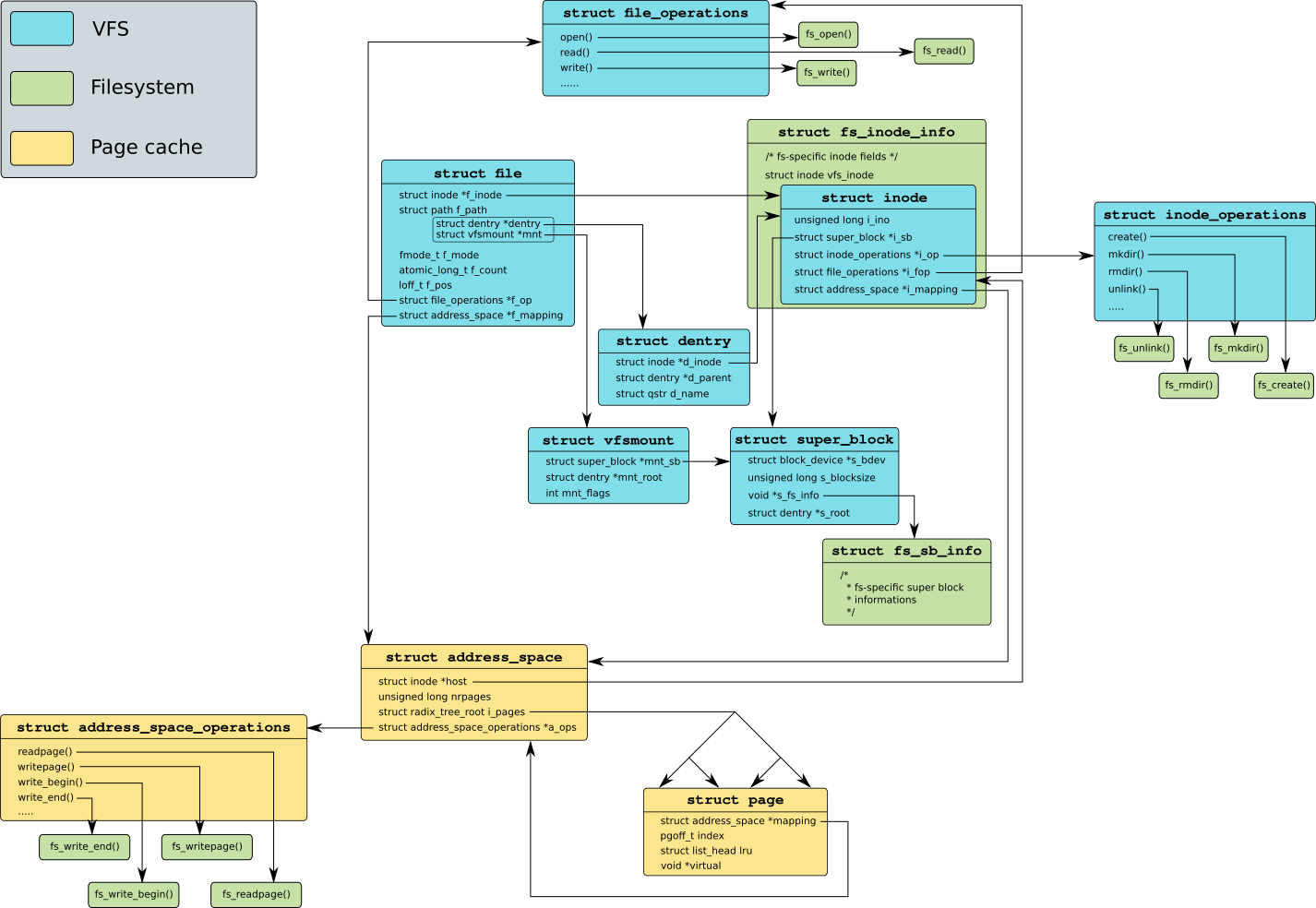The main objective of this project is to provide a simple Linux filesystem for students to build on.
You can build the kernel module for your currently running kernel with make. If you wish to build the module against a different kernel, run make KERNELDIR=<path>. Insert the module with insmod ouichefs.ko.
This code was tested on a 4.19 kernel.
First, build mkfs.ouichefs from the mkfs directory. Run mkfs.ouichefs img to format img as a ouiche_fs partition. For example, create a zeroed file of 50 MiB with dd if=/dev/zero of=test.img bs=1M count=50 and run mkfs.ouichefs test.img. You can then mount this image on a system with the ouiche_fs kernel module installed.
This filesystem does not provide any fancy feature to ease understanding.
+------------+-------------+-------------------+-------------------+-------------+
| superblock | inode store | inode free bitmap | block free bitmap | data blocks |
+------------+-------------+-------------------+-------------------+-------------+
Each block is 4 KiB large.
The superblock is the first block of the partition (block 0). It contains the partition's metadata, such as the number of blocks, number of inodes, number of free inodes/blocks, ...
Contains all the inodes of the partition. The maximum number of inodes is equal to the number of blocks of the partition. Each inode contains 40 B of data: standard data such as file size and number of used blocks, as well as a ouichefs-specific field called index_block. This block contains:
- for a directory: the list of files in this directory. A directory can contain at most 128 files, and filenames are limited to 28 characters to fit in a single block.
- for a file: the list of blocks containing the actual data of this file. Since block IDs are stored as 32-bit values, at most 1024 links fit in a single block, limiting the size of a file to 4 MiB.
These two bitmaps track if inodes/blocks are used or not.
The remainder of the partition is used to store actual data on disk.
- Creation and deletion
- List content
- Renaming
- Creation and deletion
- Reading and writing (through the page cache)
- Renaming
- Hard and symbolic link support


